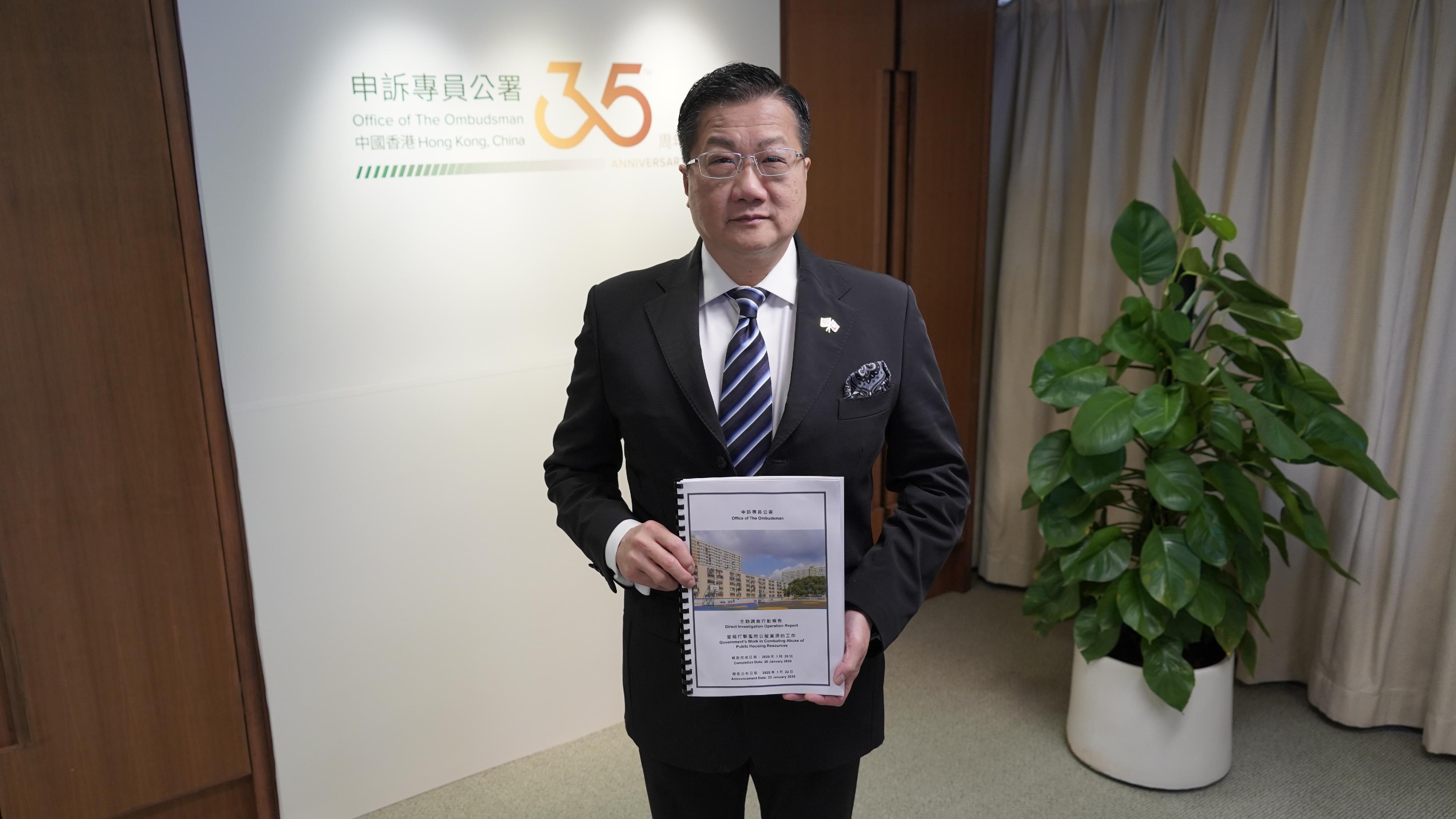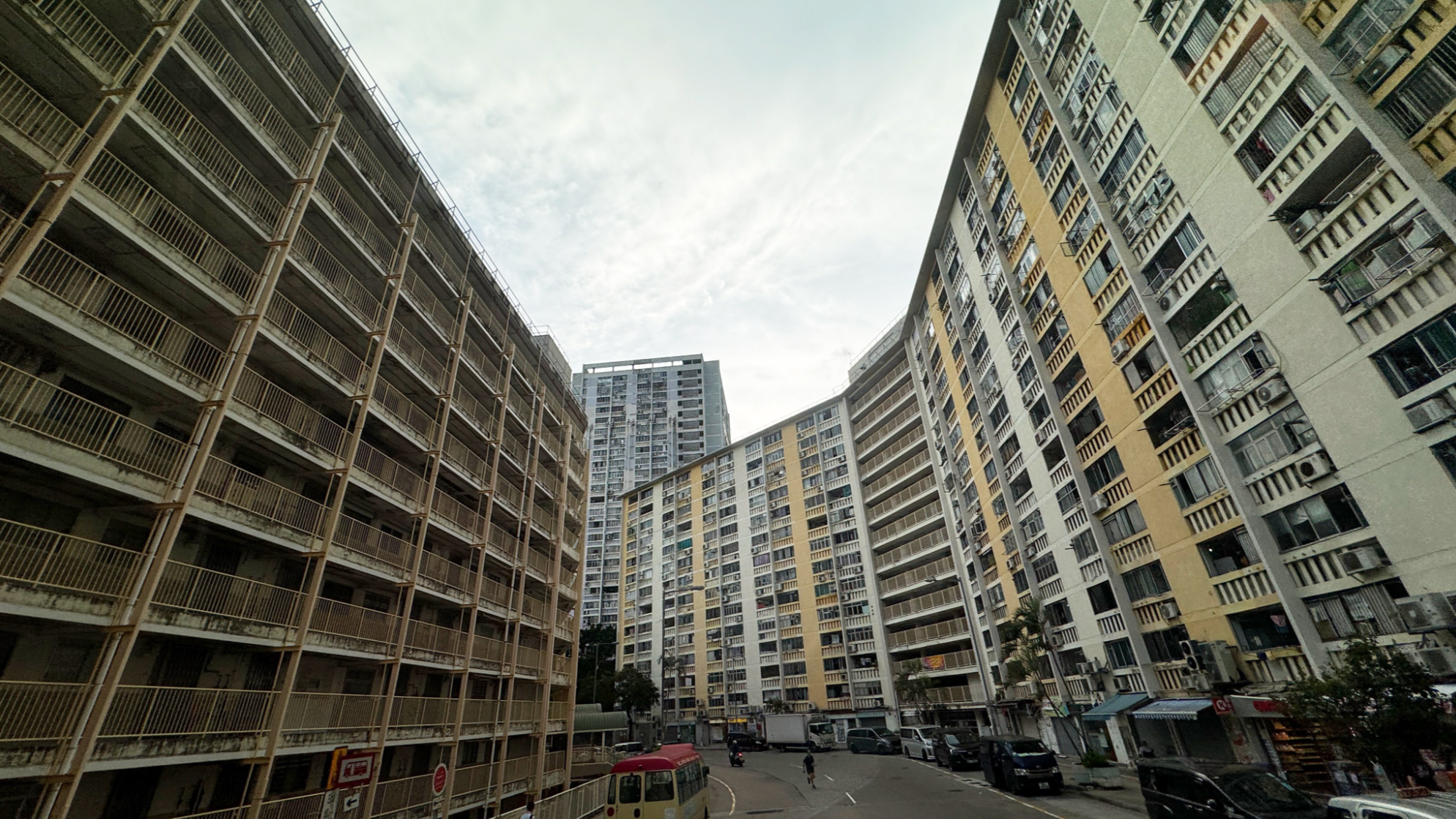
Ombudsman Jack Chan Jick-chi on Wednesday urged Hong Kong’s housing authorities to impose tougher penalties and stricter rules, including the full implementation of the “Well-Off Tenants Policies” as soon as possible, to put an end to abuse in public rental housing (PRH).
Chan made the statement in an investigation report on fighting the abuse of public housing resources, with 31 major recommendations for improvement made to the Hong Kong Housing Authority (HKHA) and the Hong Kong Housing Society (HKHS).
“The Office has made a number of recommendations, covering the applicable scope by the HKHS for the full implementation of the Well-off Tenants Policy, detection of abuse relating to 'income and assets declaration' and 'occupancy status', routine home visits, and the feasibility of increasing the deterrent effect with heavier penalties imposed on PRH abuse,” Chan said.
“The Office is pleased to note that the HKHA and the HKHS have generally accepted our improvement recommendations," he added.
A spokesman for the Housing Department (HD) said it will review and study the Ombudsman’s relevant recommendations in detail and continue to enhance the existing measures to combat tenancy abuse.
The HD thanked the Ombudsman for appreciating its enhanced measures and initiatives against tenancy abuse, including the Housing Authority's (HA) recovery of 7,000 PRH flats – equivalent to a large housing estate -- from abusive tenants.
ALSO READ: Calls grow for better use of Hong Kong's public housing
Public rental housing units are government-subsidized rental accommodation provided for those who cannot afford private housing. At present, there are more than 840,000 households, comprising more than 2.18 million tenants, living in PRH estates across Hong Kong.
The Ombudsman urged the HKHS to study again the full implementation of the WTP and seek legal advice to seriously explore ways to cover all tenants of its rental estates under the WTP "as soon as possible".
The HA has implemented, since October 2017, the revised WTP to safeguard the rational allocation of public rental housing resources. The WTP requires concerned tenants to declare their income and assets on a regular basis, with dedicated personnel and a “central audit team” conducting follow-up actions and investigation. Tenants who are proven to have abused public housing or owned any domestic property in Hong Kong have their tenancies terminated.

But as of November 2024, only 14.1 percent of HKHS tenants were covered by the WTP, the Ombudsman said.
“In other words, for the majority of HKHS tenants not covered by the WTP, it is entirely up to the tenants to voluntarily notify HKHS and surrender their flats upon household income or assets exceeding the limits or domestic property ownership acquired in Hong Kong,” he said.
Chan said such a loophole allows abusive tenants to “intentionally withhold information and persist with PRH abuse.”
Chan also urged the HKHA to comprehensively review its strategies to raise the prosecution rate against those who abuse the system. He noted that, over the past seven years, the prosecution rate of HKHA against abusers “ranged from only 1.7 percent to 4.2 percent”.
ALSO READ: Adjust housing policy to boost young people's homeownership
“As the prosecution rate is extremely low, there are public views that the deterrence is inadequate, leading tenants to be heedless of the consequences of concealing their income or assets, with a wrong perception that the worst-case scenario will be surrendering the flat and no legal liability will be incurred,” Chan said.
After examining the case files, the ombudsman also noted that the time limit for prosecution had expired in many HKHA cases when the PRH abuse was discovered.
“Consequently, HKHA was unable to prosecute tenants for making false statements even though sufficient evidence was available,” he said.
Chan also noted that before the enhanced WTP was implemented by HKHA, only abuse relating to “income and assets declaration” were prosecuted on the grounds of making false statement.
READ MORE: Fanling golf course site deemed suitable for HK public housing
“As for abuse relating to ‘occupancy status’, even for such serious cases as subletting or engaging in illegal activities in the flat, the most serious consequences would only be termination of tenancy, surrender of the flat to HKHA and disqualification from applying for public housing again within two years,” he said.
To remedy this, Chan recommended that HKHA and HKHS explore imposing heavier penalties on abusive tenants, including additional sanctions through administrative measures to achieve greater deterrence.
“The Office is pleased to see that HD is currently exploring amendments to the Housing Ordinance to raise the penalties for PRH abuse and criminalize such serious abuse as subletting and reletting,” he added.


